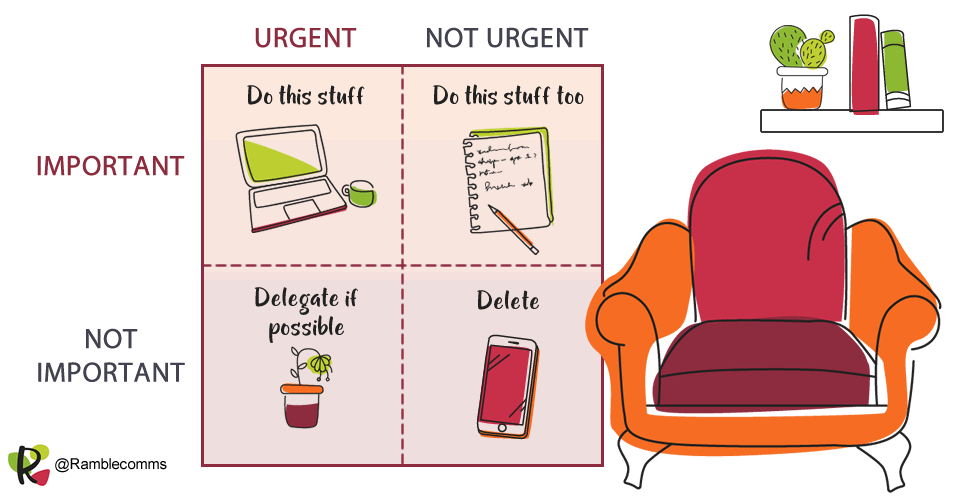Procrastination
Or, the art of doing something later.

Over here in sabbatical land, distraction has hooked up with procrastination. The relationship is going really well, they’re thinking about moving in together.
The big stuff – you know, the large, important projects or the giant life goals – well they go by the by when one has so much little stuff to fill in the gaps.
A particular distraction-meets-procrastination habit that I’m dying to break is the one where I pick up my phone to find something – perhaps a note or a web link I had saved for later – but I get so distracted by text messages and notifications that I completely forget what it was that I set out to do. Twenty minutes later, with a 3/6 Wordle score (yes!) and a whole new understanding of flower arranging with Lego, procrastination puts its feet up and settles in.
Ah, life in the home office.
Sometimes, the little stuff can act like it’s the big stuff. You know those kinds of days where you find yourself constantly reacting and responding to notifications, requests and challenges – the ‘putting out fires’ kind of days? It’s not uncommon to get to the end of a day like that having worked incredibly hard but not really feeling like you’ve achieved anything at all.
And then the productivity guilt kicks in. This is a popular phrase that explains the feeling of disappointment we experience when we don’t get as much done as we wanted to.
So, what can we do to tackle this? How do we work out firstly what to work on, and then how to feel good about the ways we’re spending our days, knowing that we might actually be working toward our goals?
A well-known tool is the Eisenhower Matrix. This is a simple graph that lets you categorise your tasks according to urgency and importance. It helps you sift out the big stuff.

The big stuff usually sits in the ‘important but not urgent’ part of the graph. Demands from the boss or clients tend to sit in the ‘urgent and important’ category.
If your big stuff feels like grey, looming clouds that follow you around with a nagging sense of disillusionment, you might like to turn this to your advantage with the concept of ‘Structured Procrastination.’ This is a deliberate set of actions that we take to avoid doing what we ought to be doing.
Ironically, structured procrastination can make us quite productive – we can get a lot done by tactically avoiding the big stuff. This is especially true if the big stuff doesn’t have a deadline.
But, for John Perry, the person who coined the phrase ‘structured procrastination’, deadlines aren’t as solid as we assume them to be. He says: “For you non-procrastinators, I will observe that deadlines really start to press a week or two after they pass,” – a sentence that generates a real sense of horror in me. I find deadlines extremely motivating. It’s avoiding all the distractions that’s hard.
While I’m on sabbatical, I have very few deadlines to motivate me. So I’m turning the idea of structured procrastination into my own personal motivational tool. Even just knowing the method exists is helping me. It means that, if I catch myself procrastinating, I can choose to either take the opportunity to get a whole lot of other stuff done or I can decide to rebel against that part of my nature, turn off distractions and put my energy into the big stuff.
In doing this, I have to let myself be happy with whichever path I choose.
As an added bonus, this helps me deal with the productivity guilt. Some of you may know that I tend to be quite hard on myself. So, in making an agreement with myself about the choices that I make, I get stuff done and I lessen the guilt. Win-win.
I hope this post offers a little inspiration in case you’re putting something off. May the gods of productivity shine on you, dear reader, and may you find some downtime too.

